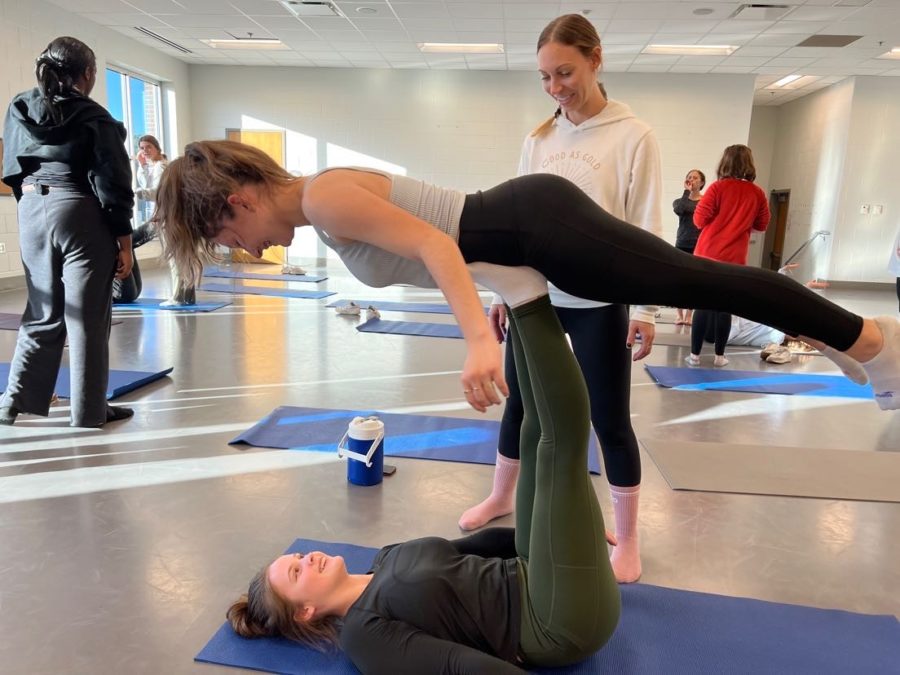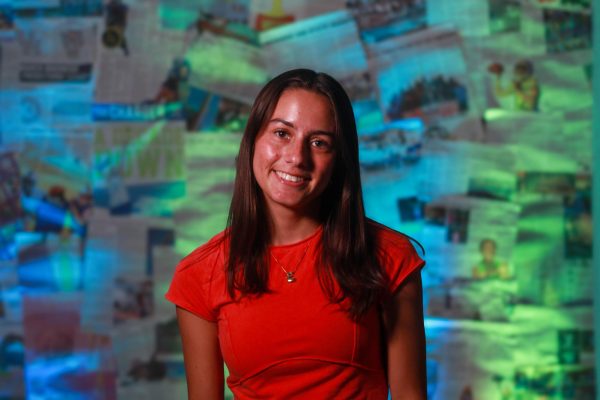R.I.S.E. continues to raise awareness on stigmatized mental health issues
November 1, 2022
Mental health continues to become a more prominent issue not only for high schoolers, but all ages regardless of circumstance. High school students have a massive amount of pressure placed on them whether in school, sports, or social aspects. This pressure often causes a lot of stress, anxiety, and even depression. Oxford High’s R.I.S.E. peer to peer mental health organization is working to teach students about identifying and coping with these issues.
R.I.S.E. (reach, inspire, support, and empower) is a student-led mental health organization that aims to educate students on mental health. R.I.S.E. helps students find support and resources to empower themselves when they’re struggling.
R.I.S.E. at Oxford was started by Kakky Brown, who worked at Oxford High as an English teacher until this year. She made Oxford the first high school to introduce this program in the nation and also researched different models for an effective wellness education and settled on the peer to peer model.
“It’s a powerful thing to hear your peers stand up and acknowledge and educate on these things that typically make you feel isolated,” Brown said. “The big message is that you aren’t alone.”
She worked with Meg Hayden, who worked here as a nurse until last year as well. They received recommendations from teachers and looked for students interested to start-up the program in 2017.
“From there, R.I.S.E. took on a life of its own, growing and becoming the support and education students need and want,” Brown said.
Brown and Hayden still do some work for RISE, but they have passed on leadership to Deb Jones, a science teacher at OHS.
“Watching R.I.S.E. from afar now is such a gift,” Brown said. “It’s what we envisioned as far as student led and student centered.”
Jones became the R.I.S.E. leader through Brown and Hayden. She was good friends with them outside of school from teaching and participating in yoga together. They even started a sister club at Lafayette while Jones worked there.
“When I transferred to Oxford, I took over R.I.S.E. when they left,” Jones said.
Jones now provides a space for R.I.S.E.. She oversees meetings and events and does background work for the club.
“I talk to administration and teachers and make sure we have approval for the events we want to do,” Jones said.
The meetings and event ideas are mainly generated by the students. Jones helps to guide the discussion in meetings and keep the members on track.
“I guide the logistics of their ideas to see what can work into a school day and what can work in the community,” Jones said.
Jones enjoys R.I.S.E. because she loves to see students supporting and empowering one another. She can see how they form a community and really have each other’s backs.
“I like that I can provide the time and space for students to have a safe place to discuss their issues,” Jones said.
The main leaders are on a leadership team. This is a group of 4-5 students who plan events and meetings for rise. Two of these students are Claire Anne Boudreaux and Fikir Beyene who are avid participants in RISE.
“We try to set up partnerships with other groups across the city, so we are trying to work with our school district’s wellness clinic or Ole Miss,” Beyene said. “We are starting to figure out some projects that we want to host at the school this year.”
The leadership team has struggled to keep the momentum going with people’s busy schedules. Although they face challenges, they always remember how important RISE is to the student body.
“In your day to day life you can see people struggling with mental health, so that kind of always brings me back to it,” Boudreaux said. “It reminds me why RISE is so needed and why we should put effort into the leadership team.”
R.I.S.E. can also help with your own struggles with mental health. A lot of the members joined for this reason. Boudreaux was introduced to RISE by Brown while she was the teacher in charge.
“I saw Ms. Brown doing these R.I.S.E. things with other people, and I thought about how much that could help me,” Boudreaux said.
Beyene had a similar experience in Brown’s class her freshman year. Brown had her class do mindful minutes, and Beyene saw how it really helped her. This made her want to join R.I.S.E..
“Knowing I could pass that onto other people really encouraged me to join R.I.S.E.,” Beyene said.
R.I.S.E. does many different things for the community. One thing they do is give presentations to freshmen on stress, anxiety, depression, and suicide.
“We educate students on how to recognize those things, and we also have general projects that encourage wellness and self care practices,” Boudreaux said.
Another thing they are bringing back this year is weekly yoga sessions with Jones, who is a certified yoga instructor
“Having that makes it easy for us to set up yoga sessions that help students be mindful in a free and accessible way to everybody,” Beyene said.
Members of R.I.S.E. go through training to become certified peer educators. NASPA, a nationally recognized peer educator organization, is the program that gives them the resources to certify the students in the club.
“There’s different modules relating to different aspects of how to interact with your peers and teaching you about the mental health topics,” Boudreaux said. “We watch videos, take tests, and have discussions about all those things.”
Brown and Hayden are certified peer education facilitators, and they come back to the school to help facilitate the training. The leadership team also helps.
“We are kind of the guinea pig project, but we’ve also been really successful in ensuring that the education isn’t just watching the videos,” Beyene said. “It’s more truly understanding what the listening skills and the referral skills being taught in those videos mean and how they apply to the student body as a whole.”
R.I.S.E. gives members the opportunity to impact the lives of their peers. They have been able to actually see how it affects people.
“That makes me realize that people aren’t getting these tools from other places in their lives, and R.I.S.E. is really bringing that to them,” Boudreaux said.
R.I.S.E. also focuses on ensuring that all members’ opinions are heard and taken into consideration, which is something you can’t find in all clubs. The leadership team has a horizontal leadership method to make sure everyone is equally in charge. This also makes it easier to form friendships and real community in the club.
“We are spending so much time with each other on setting up these projects and in our meetings,” Beyene said. “It’s made us a lot closer.”




